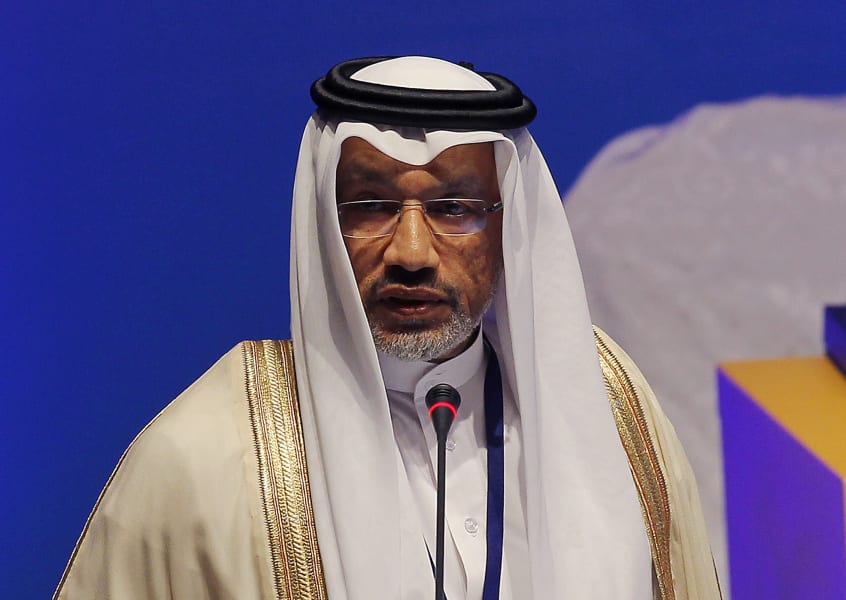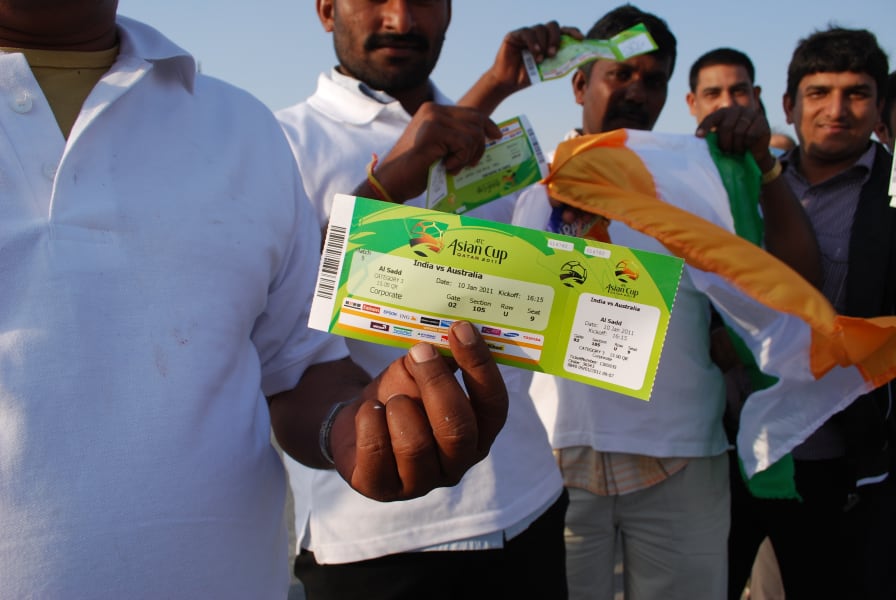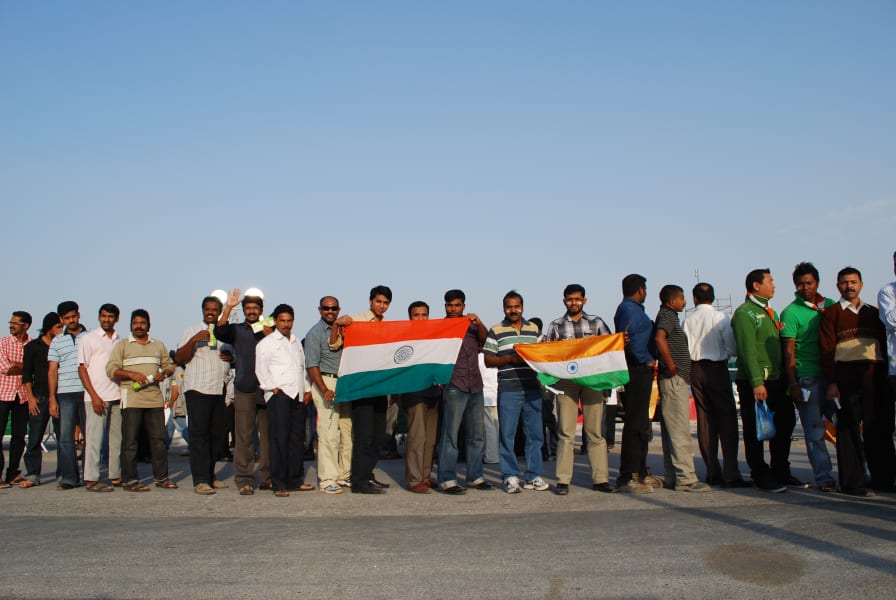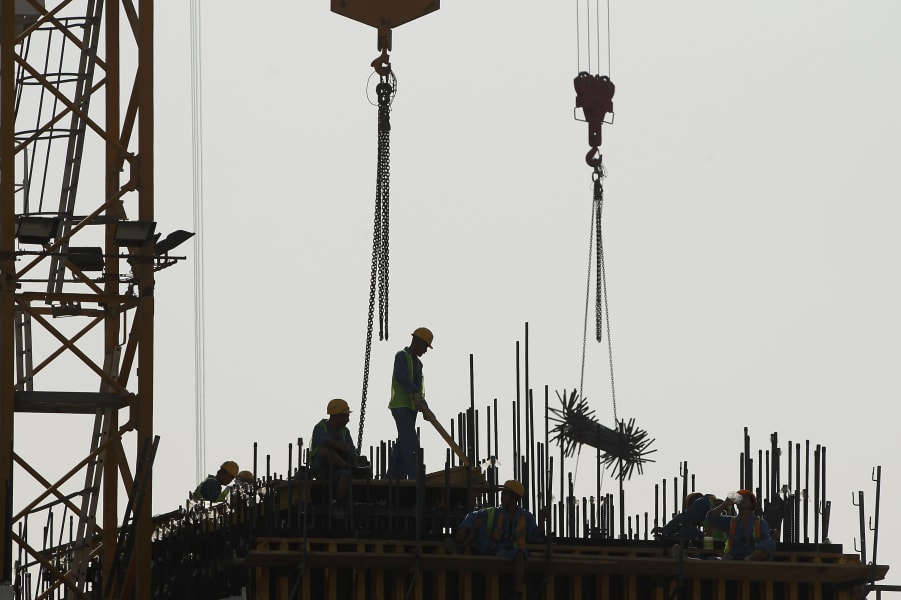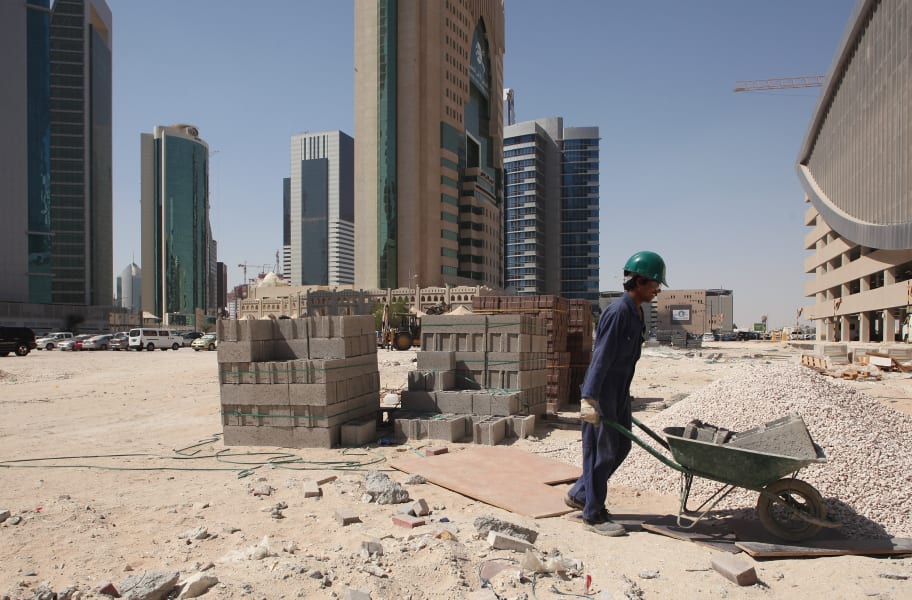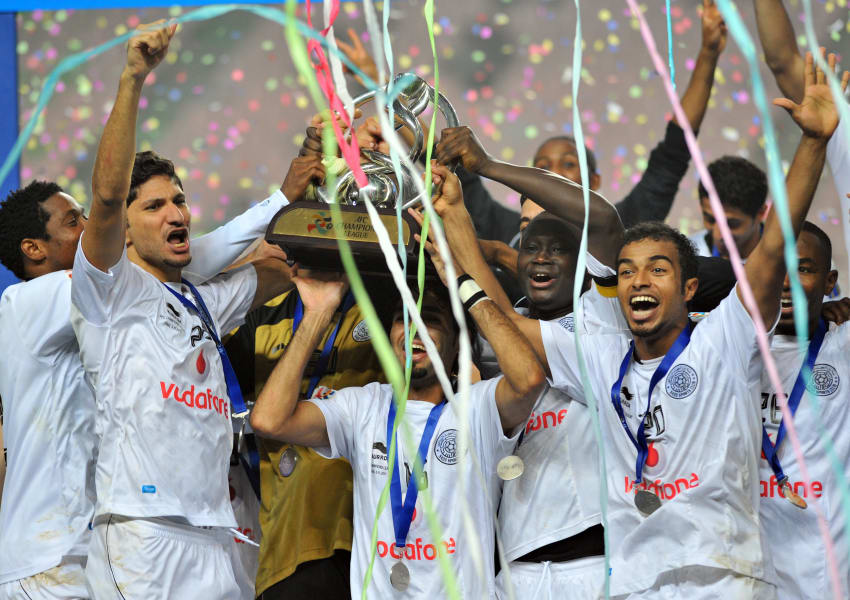Share
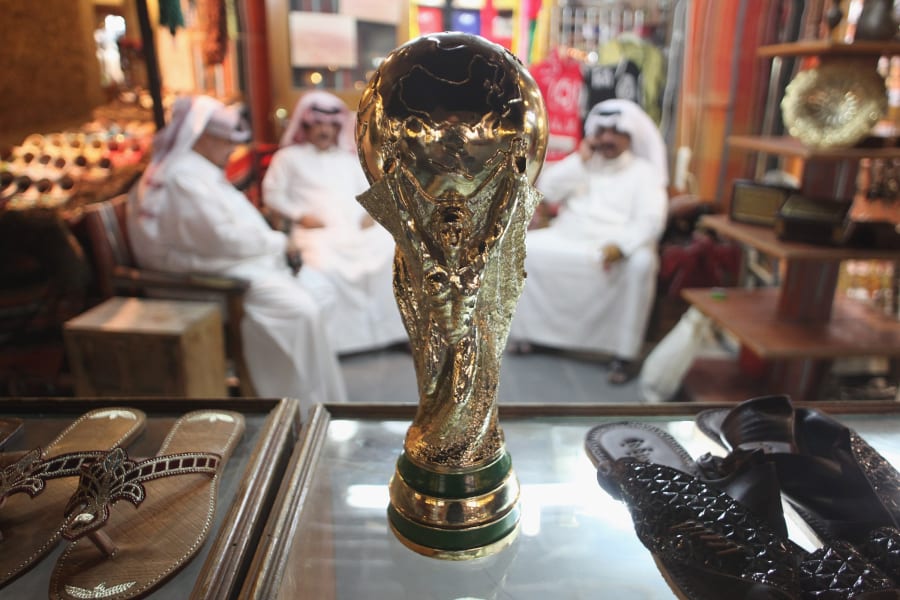

1 of 14
Few people outside of the Middle East had even heard of Qatar before the announcement by FIFA in 2010 that the Emirate would host the 2022 World Cup finals. But the award has brought with it greater exposure. Sean Gallup/Getty Images/File
In particular the plight of the country's migrant workers, who make up 90% of Qatar's population, has been highlighted by the International Trade Union Confederation. The ITUC has called for FIFA to strip Qatar of the 2022 World Cup unless it significantly improves its record on worker rights. Sean Gallup/Getty Images/File
The ITUC points to Qatar's system of sponsorship which ties workers to employers and has been abused in the past. They also point to the high number of worker deaths and the conditions that many find themselves in. Temperatures on building sites in the summer months can hit 50 degrees Celcius. Sean Gallup/Getty Images/File
Qatar's economy has boomed since it started exporting liquefied natural gas in 1997 -- only Luxembourg has a higher gross domestic product per capita. But the 2022 World Cup has sparked a construction boom in a race to ready Qatar's infrastructure for the tournament. AFP/Getty Images
Qatar's ambitious plans include building brand new, state of the art stadiums that would rival any in the world. Getty Images/File
To combat the intense desert heat in the summer, each stadium would be equipped with zero-carbon technology that would cool the pitch and the stands. Getty Images/File
But costs have spiraled and the technology has yet to be successfully deployed in full. Qatar's 2022 World Cup organizing committee requested that the number of new stadiums it builds be reduced to eight or nine from the originally planned 12. Getty Images/File
The Qataris have also been busy investing in football abroad. The Qatar Investment Authority bought a majority shareholding in French football club Paris Saint-Germain in May 2011, immediately making it one of the richest teams in Europe. Ex-Milan and Inter coach Leonardo, center, was appointed director of football, while Carlo Ancelotti (left) was coach. Both left in 2013. AFP/Getty Images
Qatar has its own 12-team top division, with the leading four clubs at the end of the season going into the Qatar Crown Prince Cup. Football is the most popular sport in the kingdom, with nearly 700,000 attending matches in any one season. AFP/Getty Images
Sheikh Abdullah Bin Nassar Al-Thani (left), a member of the Qatari royal family, bought Spanish club Malaga for €36 million ($48 million) in June 2010. The investment brought with it a place in the 2012-13 UEFA Champions League, where Malaga reached the quarterfinals, but since then top players have been sold to reduce the debts which incurred a ban under financial fair play rules. AFP/Getty Images
Al Sadd's victory in the 2011 Asian Champions League final vindicated Qatar's decision to plow money into its coaching setup rather than splash out on top overseas names. Just five of Al Sadd's playing roster were non-Qatari nationals. AFP/Getty Images
Mohammed bin Hammam, Qatar's former high-ranking member of FIFA's executive committee and head of the Asian Football Confederation, was banned from football after being found guilty of trying to bribe delegates ahead of the 2011 presidential election in which he was to be Sepp Blatter's only opponent. AFP/Getty Images
The issue of how migrant workers are treated has long been a hot topic in the Gulf. The UAE, Saudi Arabia, Kuwait and Bahrain have all been criticized in the past for their poor treatment of guest workers. But the 2022 World Cup has focused attention on Qatar. Here one Indian worker proudly shows his ticket for a match at the 2011 Asian Cup finals, hosted in Doha. James Montague/File
Thousands of Indian workers were given the day off by their employers and given free tickets to watch India play at the tournament, even though most were ardent cricket fans. Many spoke of their relief at working in Doha, rather than any of the other Gulf cities near by.
